|
|
|
Sort Order |
|
|
|
Items / Page
|
|
|
|
|
|
|
| Srl | Item |
| 1 |
ID:
121007


|
|
|
|
|
| Publication |
2012.
|
| Summary/Abstract |
This article exploits newly-released archival materials to survey and assess the course and impact of Stalin's repression of the late 1930s on the command cadre of the Siberian Military District.
|
|
|
|
|
|
|
|
|
|
|
|
|
|
|
|
| 2 |
ID:
026039
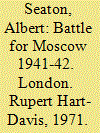

|
|
|
|
|
| Publication |
London, Rupert Hart-Davis, 1971.
|
| Description |
320p.Hbk
|
| Standard Number |
0246640448
|
|
|
|
|
|
|
|
|
|
|
|
Copies: C:1/I:0,R:0,Q:0
Circulation
| Accession# | Call# | Current Location | Status | Policy | Location |
| 008015 | 940.542147/SEA 008015 | Main | On Shelf | General | |
|
|
|
|
| 3 |
ID:
114455
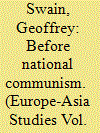

|
|
|
|
|
| Publication |
2012.
|
| Summary/Abstract |
In 1959, Indriks Pinksis, Eduards Berklavs and Vilis Kruminš were among the prominent targets of Moscow's National Communist purge of supposed 'bourgeois nationalists' operating within the leadership of the Latvian Communist Party. A decade earlier all three had been active leaders of the Latvian Komsomol. This article explores the Stalin years of the Latvian Komsomol, and argues that the Komsomol was only able to win an acceptable number of recruits when it abandoned attempts to recruit on the basis of wartime activity or class allegiance and focused on recruiting ethnic Latvians. However, this raised the same issues later faced by the National Communists: as membership was extended to those with a 'doubtful' background, and the press played down 'proletarian internationalism', Moscow took fright. In early 1953 the Latvian Komsomol experienced a purge similar in tone to that which would take place within the Latvian Communist Party more broadly in 1959.
|
|
|
|
|
|
|
|
|
|
|
|
|
|
|
|
| 4 |
ID:
116782
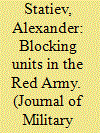

|
|
|
|
|
| Publication |
2012.
|
| Summary/Abstract |
After the German offensive toward Stalingrad began in 1942, Joseph Stalin issued Order No. 227 (the "Not a Step Back!" order), institutionalizing the blocking units that already existed in some divisions. This article examines the units and their place among the Red Army's other draconian policies. Historians interpret Order No. 227 as exceptionally harsh, yet the policies stemming from it were exceptional primarily in their methodical application rather than in their essence. A logical outcome of "the end justifies the means" Stalinist philosophy, blocking units made the army steadier and contributed to its victory. This was the only fact that mattered to the Soviet leaders, and they ignored the moral issues raised by the existence of the units.
|
|
|
|
|
|
|
|
|
|
|
|
|
|
|
|
| 5 |
ID:
042455
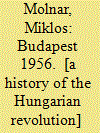

|
|
|
|
|
| Publication |
London, George Allen & Unwin Ltd., 1971.
|
| Description |
303p.Hbk
|
| Standard Number |
0049470205
|
|
|
|
|
|
|
|
|
|
|
|
Copies: C:1/I:0,R:0,Q:0
Circulation
| Accession# | Call# | Current Location | Status | Policy | Location |
| 010413 | 943.9053/MOL 010413 | Main | On Shelf | General | |
|
|
|
|
| 6 |
ID:
032096
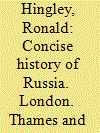

|
|
|
|
|
| Publication |
London, Thames and Hudson, 1972.
|
| Description |
224p.: ill.,table.Hbk
|
| Standard Number |
0500450099
|
|
|
|
|
|
|
|
|
|
|
|
Copies: C:1/I:0,R:0,Q:0
Circulation
| Accession# | Call# | Current Location | Status | Policy | Location |
| 008719 | 947/HIN 008719 | Main | On Shelf | General | |
|
|
|
|
| 7 |
ID:
106686


|
|
|
| 8 |
ID:
118410
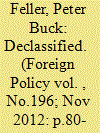

|
|
|
| 9 |
ID:
131154


|
|
|
|
|
| Publication |
2014.
|
| Summary/Abstract |
The article uses a variety of documents, published and unpublished, to explore the 1923 arrest, interrogation and 'trial' of Mirsaid Sultan-Galiev, often considered the Bolsheviks' leading expert on Muslim affairs in the early Soviet period. Contrary to the historiography on this crucial moment in the development of Soviet nationality policy, I argue that Sultan-Galiev was not Stalin's 'first victim'. Rather, responding to the vagaries of Soviet nationality policy, he did indeed violate party discipline in a number of ways, and was engaged in developing conspiratorial ties outside of the party. In fact, the party leaders, and Stalin in particular, treated him less severely than they could have.
|
|
|
|
|
|
|
|
|
|
|
|
|
|
|
|
| 10 |
ID:
100597
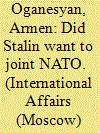

|
|
|
|
|
| Publication |
2010.
|
| Summary/Abstract |
ON 25 AUGUST 1952, Stalin received French Ambassador Louis Joxe for a working meeting at which the ambassador in reply to Stalin's question about the nature of NATO from Charles de Gaulle's perspective hinted that the bloc was an absolutely peaceful structure strictly within the UN Charter. "Stalin laughed and asked Vyshinsky, who was present during the conversation, whether the U.S.S.R. should join it then." Nikolai Kochkin who had spent some time in the Russian Foreign Ministry's archives pointed out: "From every indication, it was simply irony, but it cannot be ruled out that Stalin had some latent intentions" (Mezhdunarodnaia zhizn, No. 1-2, 2009, www.interaffiars.ru). In 1951, Andrei Gromyko repeatedly stated: "If this pact was aimed against the restoration of German aggression, the U.S.S.R. would join NATO."
|
|
|
|
|
|
|
|
|
|
|
|
|
|
|
|
| 11 |
ID:
131156
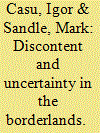

|
|
|
|
|
| Publication |
2014.
|
| Summary/Abstract |
This article examines reactions to de-Stalinisation in Soviet Moldavia between February 1956 and March 1957. The article is based on evidence from the archives of both the former Communist Party of Moldavia and the Moldavian KGB. It highlights the uncertainty there was at local levels because of the denunciation of Stalin. Local party reports demonstrate concern about the activities of religious activists, Western propaganda, nationalism and disaffected youth. The Hungarian revolution of 1956 caused the party to change tack, and to begin a clampdown. These reports highlight that Soviet rule had very shallow roots in Moldavia.
|
|
|
|
|
|
|
|
|
|
|
|
|
|
|
|
| 12 |
ID:
157413
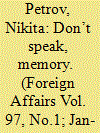

|
|
|
|
|
| Summary/Abstract |
Every spring, buses covered in portraits of Joseph Stalin appear on the streets of Russian cities. His face replaces ads for cell phones, soft drinks, laundry detergent, and cat food. With each passing year, the dictator gets more handsome and more glamorous; a portrait of him in his gorgeous white generalissimo’s jacket has become especially popular. He casts his stern gaze on the citizens, as if to say, “Remember me? I’m here, I didn’t go anywhere—and don’t you forget it!”
|
|
|
|
|
|
|
|
|
|
|
|
|
|
|
|
| 13 |
ID:
051270
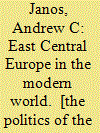

|
|
|
|
|
| Publication |
California, Stanford University Press, 2000.
|
| Description |
xvi, 488p.: ill., maps, table, figuresPbk
|
| Contents |
Includes all bibliographies references and index.
|
| Standard Number |
0804746885
|
|
|
|
|
|
|
|
|
|
|
|
Copies: C:1/I:0,R:0,Q:0
Circulation
| Accession# | Call# | Current Location | Status | Policy | Location |
| 048114 | 947.000904/JAN 048114 | Main | On Shelf | General | |
|
|
|
|
| 14 |
ID:
111974
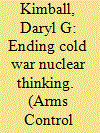

|
|
|
| 15 |
ID:
032046
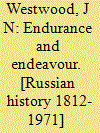

|
|
|
|
|
| Publication |
Oxford, Oxford University Press, 1973.
|
| Description |
viii, 472p.: maps, tableHbk
|
| Standard Number |
0199130728
|
|
|
|
|
|
|
|
|
|
|
|
Copies: C:1/I:0,R:0,Q:0
Circulation
| Accession# | Call# | Current Location | Status | Policy | Location |
| 013436 | 947.072/WES 013436 | Main | On Shelf | General | |
|
|
|
|
| 16 |
ID:
025059


|
|
|
|
|
| Publication |
London, Croom Helm, 1973.
|
| Description |
viii, 511p.Hbk
|
| Standard Number |
0856640565
|
|
|
|
|
|
|
|
|
|
|
|
Copies: C:1/I:0,R:0,Q:0
Circulation
| Accession# | Call# | Current Location | Status | Policy | Location |
| 012107 | 923.147/FRA 012107 | Main | On Shelf | General | |
|
|
|
|
| 17 |
ID:
032612
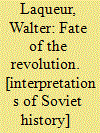

|
|
|
|
|
| Publication |
London, WeidenFeld and Nicolson, 1967.
|
| Description |
viii, 216p.Hbk
|
|
|
|
|
|
|
|
|
|
|
|
Copies: C:1/I:0,R:0,Q:0
Circulation
| Accession# | Call# | Current Location | Status | Policy | Location |
| 001134 | 947.089/LAQ 001134 | Main | On Shelf | General | |
|
|
|
|
| 18 |
ID:
110457
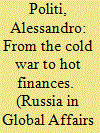

|
|
|
|
|
| Publication |
2011.
|
| Summary/Abstract |
Bush remembers the tragedy of Charles V of Habsburg and Philip II of Spain who strove to keep one world under one sensible hegemony and, despite defeating major adversaries, failed over the stubborn resistance of rebels and heretics then in Holland and yesterday in Iraq - debt and imperial overstretching as predicted by Paul Kennedy.
|
|
|
|
|
|
|
|
|
|
|
|
|
|
|
|
| 19 |
ID:
107055
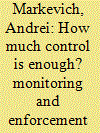

|
|
|
|
|
| Publication |
2011.
|
| Summary/Abstract |
The article examines the control system that Stalin established to enforce his orders. Historical records demonstrate that Stalin designed the system's scope, organisation and credentials to maximise its cost-effectiveness. On several occasions Stalin deliberately limited the system's size and stimulated whistle-blowing in an attempt to mitigate running costs. In contrast, distorted preferences and constraints on inspectors' loyalty contributed to the multiplication of the number of monitoring agencies. Because his orders were incomplete, Stalin authorised his inspectors not only to monitor, but also to intervene in operational matters wherever necessary.
|
|
|
|
|
|
|
|
|
|
|
|
|
|
|
|
| 20 |
ID:
091354


|
|
|
|
|
|
|
|